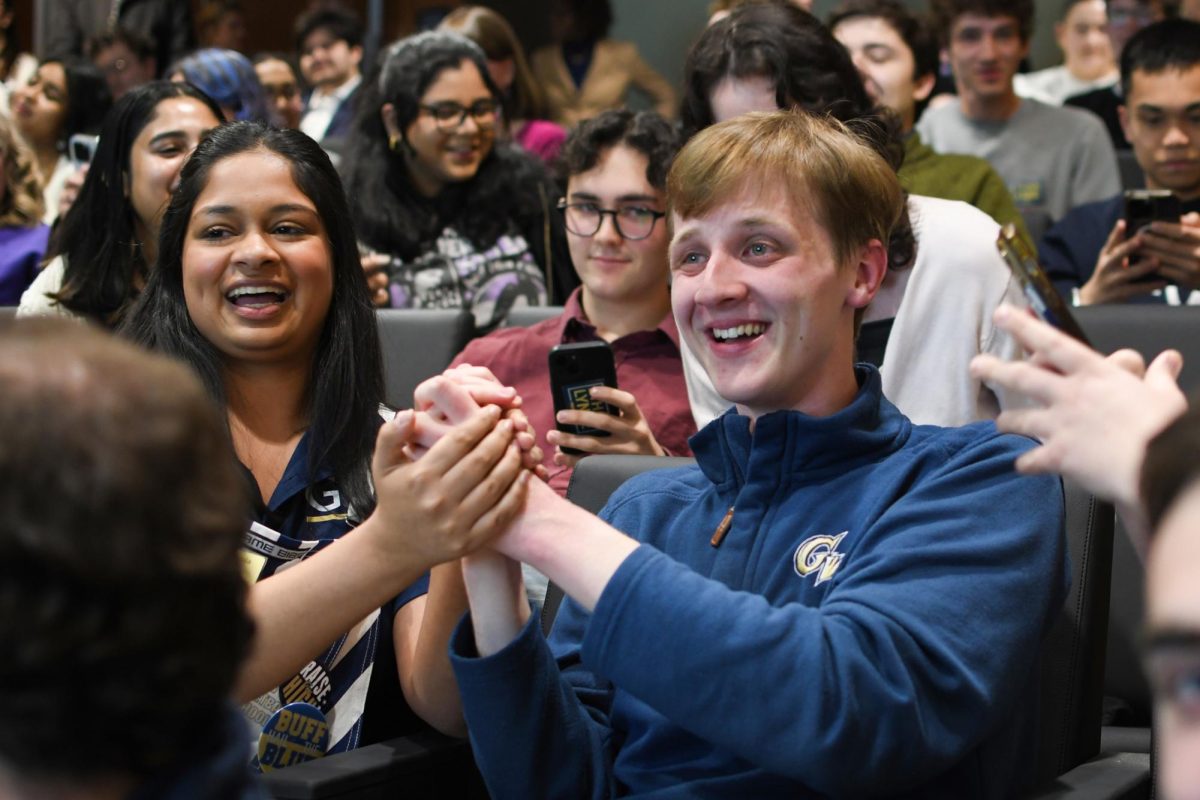Correction appended
The University’s new counseling center director brings two decades of clinical experience to a center that went nearly a year without a permanent head.
Silvio Weisner was hired away from Marymount University, where he said he spent seven years building a counseling center “from the ground up.”
He will lead the UCC starting Oct. 15, equipped with an expertise in counseling LGBT clients, clients affected by HIV/AIDS and deaf clients. Weisner was brought aboard the Arlington, Va. college less than a year after its counseling center was founded. He said he single-handedly hired a staff, created the policies and established the office’s identity on campus.
Mark Levine, the interim UCC director, said the search committee was drawn to Weisner’s balance of a “strong administrative and strong clinical background.”

Levine has led the center since former director John Dages resigned in December 2011, followed two months later by associate director Barbara Brown. Their leadership came under fire last fall, after more than a half-dozen former staff members told The Hatchet their resignations were prompted by poor management and a dysfunctional work environment.
Dages was in charge for two years, while Brown began as associate director in 2004.
Weisner said his first year at the center would largely be “listening and learning,” but he already has a rough outline of the next few years.
A University-wide committee, formed after Dages left last December, recommended more than a dozen improvements to the center, such as increasing awareness of and access to the center, assessing visitor and staff feedback and coordinating with other campus-wide mental health services. It also discussed reviving the UCC’s graduate student training program to bring in full-time interns who would work alongside and learn from the center’s staff.
GW’s training center, which earned certification from the American Psychological Association, attracted graduate and postdoctoral students preparing for licensing tests – until it was nixed in 2008. Levine did not return a request for comment Wednesday about why the clinic closed its training site.
Weisner developed graduate student training programs at both Marymount and George Mason universities, where he served as a staff psychologist for five years. He said he hopes to build up a training site at GW again because, “It’s important for staff to have a connection to education.”
Earning APA certification is a years-long process for most schools, a possibility Weisner said he would look at as part of a three-to-five year plan.
Stephanie Kendall, who completed her APA internship and post-doctorate at GW’s counseling center, said the experience served as the “bedrock” of her clinical career.
“It was a fantastic training programming. I knew I wanted it years before I applied,” said Kendall, who worked at GW’s center from 2005 to 2007. “People talked about it a lot, and I knew it was one of the best training sites around.”
She said bringing back the program would attract top graduate students, and stressed that “more importantly,” it would attract top staff. Kendall, who now works with graduate students at Bentley University’s counseling center, said being a supervisor has forced her to “stay current” on research and best practices.
Kathy Gaitan, who served as office manager of the UCC from 2004 to 2011, said the training program would draw top doctoral students to GW, who might then stay at the center and create “a culture of wanting to work and study at GW.”
The center has struggled to retain staff in recent years. Gaitan, who left in spring 2011, said she knows just two of the center’s current staff members.
The UCC hired 10 new full-time clinical staff members in 2012, including Weisner, five new staff psychologists, a case manager and three post-doctoral fellows, Levine said.
Weisner, who earned his Ph.D. from Gallaudet University, said he also looks forward to meeting regularly with clients. The previous director – Dages – only saw patients on an emergency basis, Levine said. At Marymount University, Weisner saw eight to 10 clients per week.
Naghmeh Merck, assistant director at the Marymount University counseling center, said she was confident that Weisner’s spirit would attract and retain a strong staff, calling him “the best supervisor I ever had.”
“He creates an environment – and has for last 6 years – that makes me feel comfortable and makes me want to work here,” Merck said. “The climate that’s here with the staff, we don’t go seeking other jobs, because we’re happy and were comfortable.”
The University’s search committee included administrators, faculty and students, including Amanda Uhme, co-president of Active Minds, a mental health awareness group.
“[Weisner] was absolutely my favorite candidate that we looked at,” Uhme said, stressing that he was willing to put in time beyond the “9-to-5 job” for student outreach. She said his charisma could put the center in a new light on campus.
“The counseling center has had a bad rep over the past couple of years. Obviously this is not a new counseling center, but it’s the rebuilding, rebranding feeling we’ve been looking for,” she said.
This article was updated Oct. 4, 2012 to reflect the following:
The Hatchet incorrectly reported the timeline of UCC’s staff hires. The counseling center hired 10 new staff members in 2012, not 2010. We regret this error.






